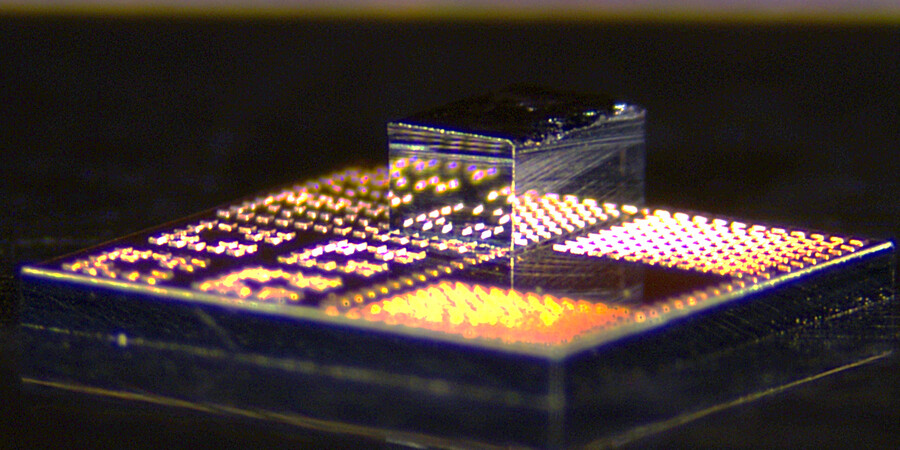Adam Zewe | MIT News Office
February 9, 2023
A certain amount of noise is inherent in any quantum system. For instance, when researchers want to read information from a quantum computer, which harnesses quantum mechanical phenomena to solve certain problems too complex for classical computers, the same quantum mechanics also imparts a minimum level of unavoidable error that limits the accuracy of the measurements.
Scientists can effectively get around this limitation by using “parametric” amplification to “squeeze” the noise –– a quantum phenomenon that decreases the noise affecting one variable while increasing the noise that affects its conjugate partner. While the total amount of noise remains the same, it is effectively redistributed. Researchers can then make more accurate measurements by looking only at the lower-noise variable.
A team of researchers from MIT and elsewhere has now developed a new superconducting parametric amplifier that operates with the gain of previous narrowband squeezers while achieving quantum squeezing over much larger bandwidths. Their work is the first to demonstrate squeezing over a broad frequency bandwidth of up to 1.75 gigahertz while maintaining a high degree of squeezing (selective noise reduction). In comparison, previous microwave parametric amplifiers generally achieved bandwidths of only 100 megahertz or less.
Complete article from MIT News.
Explore
MIDDAS: Memory Integration and Data Dis-Aggregation
Wednesday, November 19, 2025 | 12:00 - 1:00pm ET
Hybrid
Zoom & MIT Campus
New 3D Chips could Make Electronics Faster and more Energy-Efficient
Adam Zewe | MIT News
The low-cost, scalable technology can seamlessly integrate high-speed gallium nitride transistors onto a standard silicon chip.
Closing in on Superconducting Semiconductors
Julianna Mullen | Plasma Science and Fusion Center
Plasma Science and Fusion Center researchers created a superconducting circuit that could one day replace semiconductor components in quantum and high-performance computing systems.




